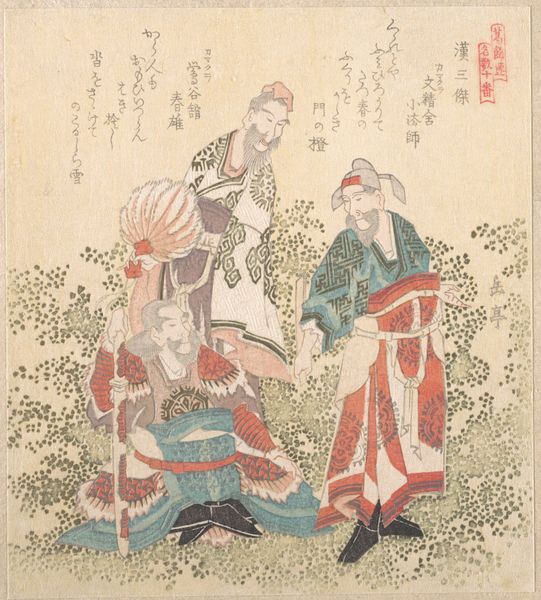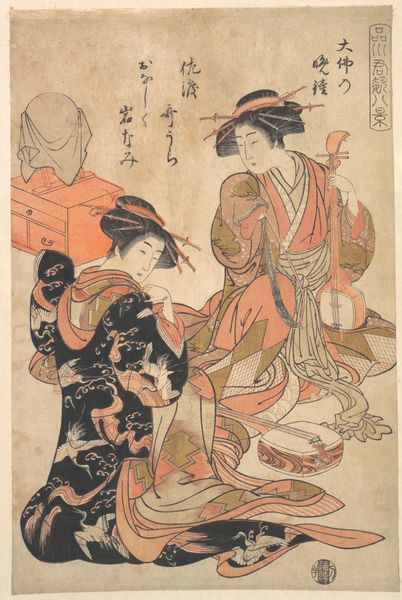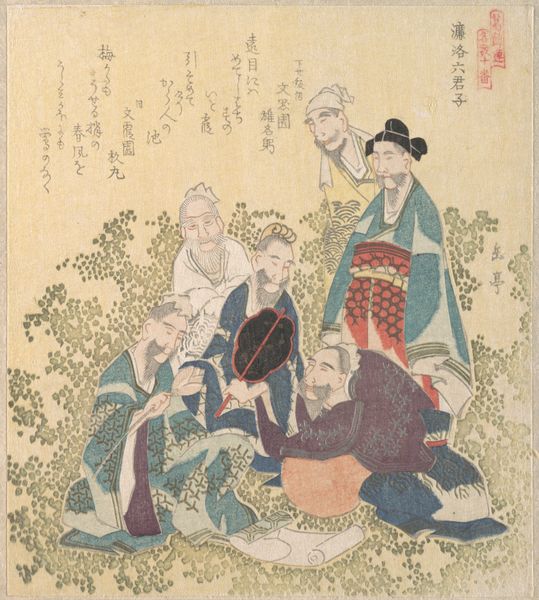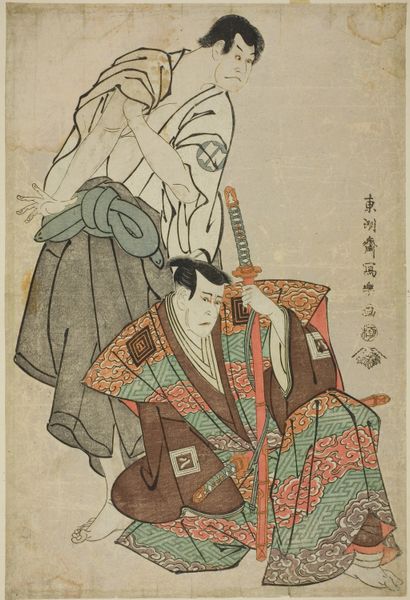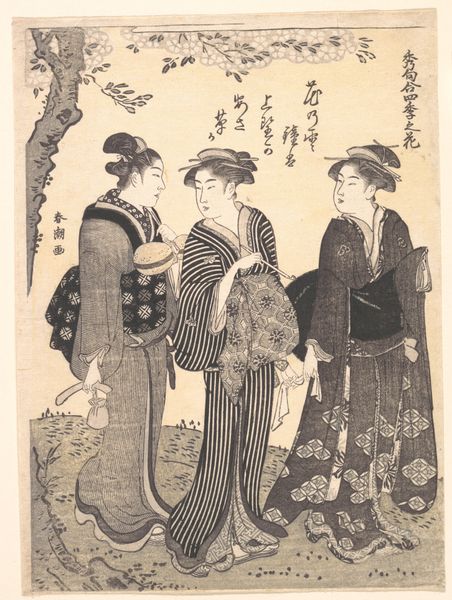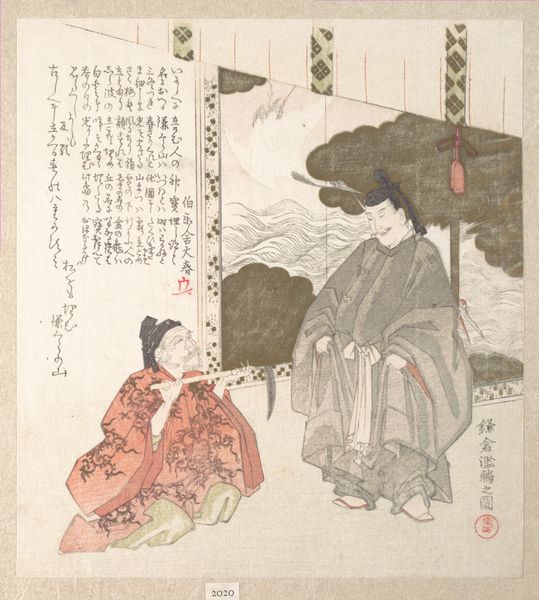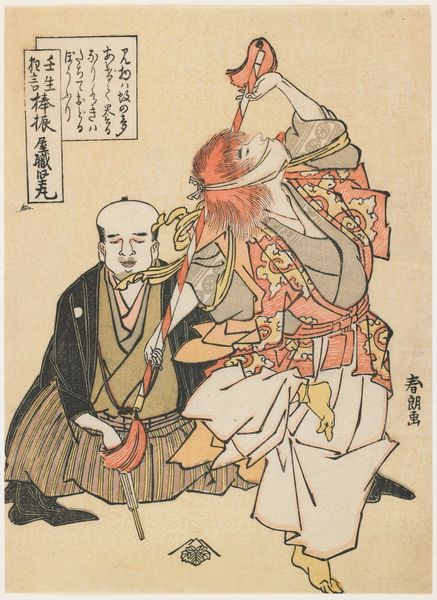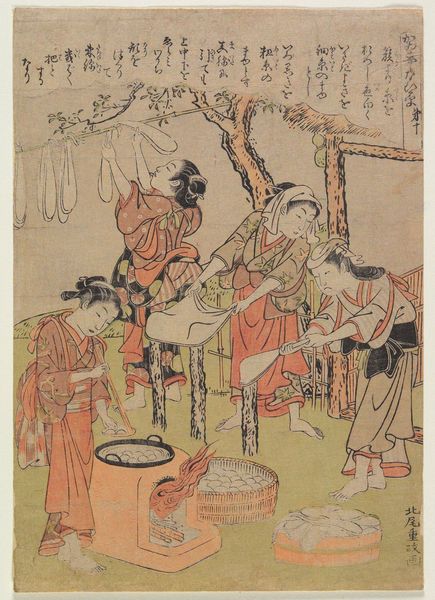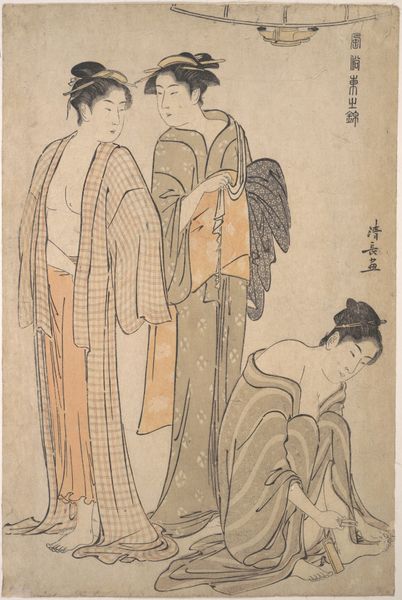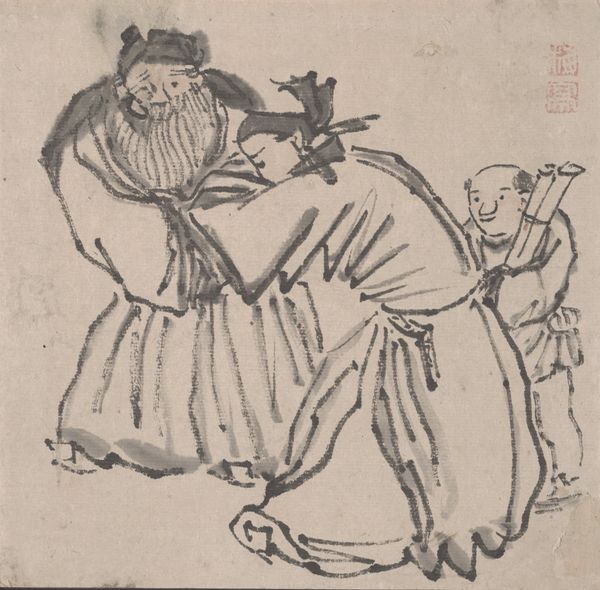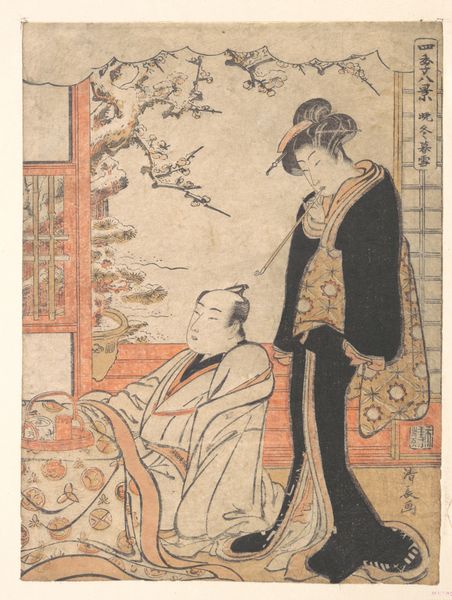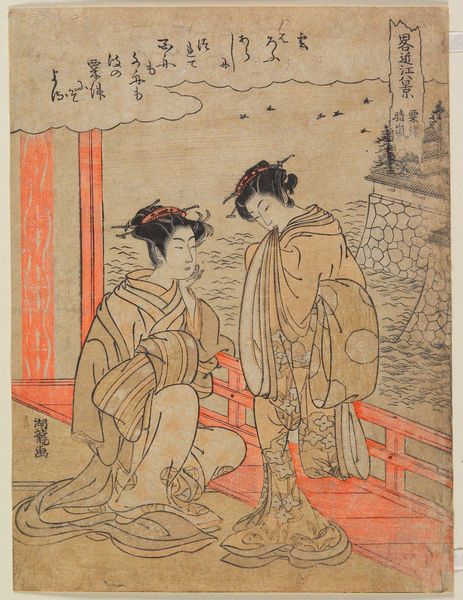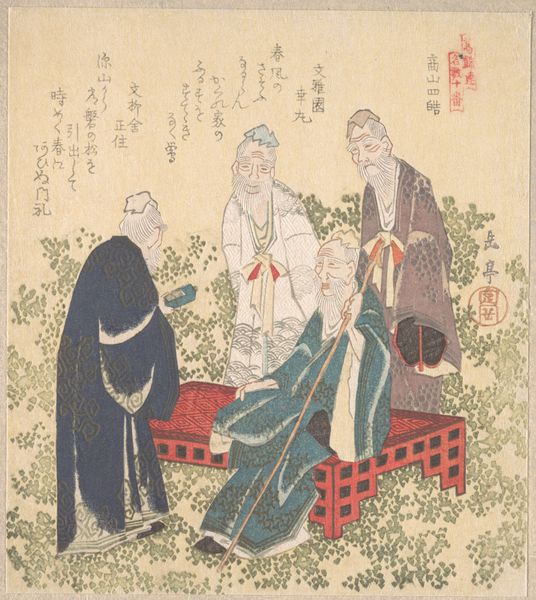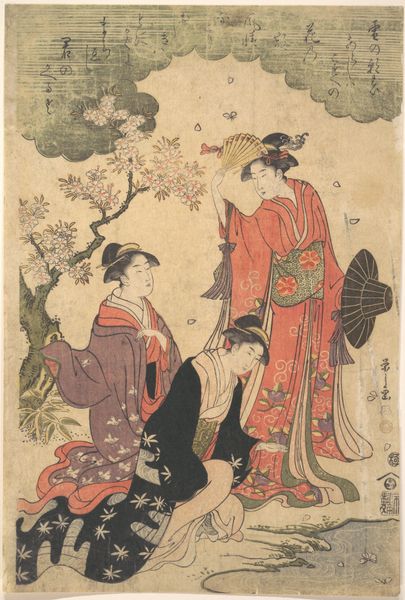
silk, color-on-silk, painting, hanging-scroll, ink
#
ink painting
#
silk
#
color-on-silk
#
painting
#
asian-art
#
figuration
#
hanging-scroll
#
ink
Dimensions: 52 13/16 × 29 3/4 in. (134.14 × 75.57 cm) (image)79 9/16 × 34 3/4 in. (202.09 × 88.27 cm) (mount, without roller)
Copyright: Public Domain
Liu Jun painted this hanging scroll of Daoist figures using ink and color on silk, probably in the late 15th century. The earth-toned silk creates a visual field where the figures and landscape emerge. The texture and materiality of the silk support the painted forms, blurring the distinction between surface and image. Observe the composition: a cluster of figures in the foreground against a softly rendered landscape. The brushwork delineates the folds of the robes with subtle variations, suggesting movement and depth. The plum blossoms, in the upper right corner, act as visual signifiers of renewal and the cyclical nature of time. The formal arrangement suggests a narrative, yet remains open to interpretation, resisting any singular meaning. Consider how the artist employs space, form, and line to invite contemplation on the relationship between humanity and nature. The painting encourages us to reflect on the interplay between form and content, representation and abstraction, as well as the philosophical underpinnings of Daoist thought.
Comments
minneapolisinstituteofart about 2 years ago
⋮
Three figures stand in a mountainous landscape and bid farewell to each other. Their attributes identify them as three of the Eight Immortals from the Daoist tradition. The Eight Immortals are legendary beings, each representing a different condition of life: poverty, wealth, aristocracy, low social rank, age, youth, masculinity, and femininity. Zhong Liquan is on the right and holds a large fan that can resurrect the dead and transform stones into silver or gold. Zhang Guolao, who characterizes old age, is in the center, with a tube-shaped bamboo drum strapped to his back. Cao Guojiu is on the left, dressed in official robes and holding a wine jar; he is regarded as the patron deity of acting and theater. The painting is likely the work of Liu Jun, a court painter of the Ming dynasty, whose work is characterized by dramatic scenes populated with figures.
Join the conversation
Join millions of artists and users on Artera today and experience the ultimate creative platform.
